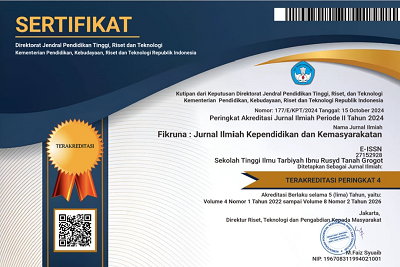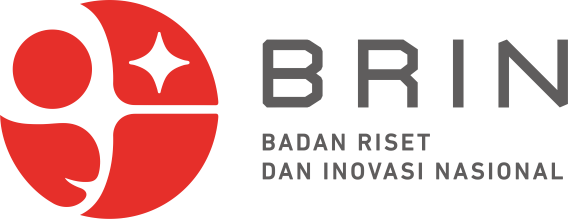REGULASI MEDIA SOSIAL DAN PENANGANAN DISINFORMASI ANALISIS KOMPARATIF KEBIJAKAN KOMUNIKASI DI INDONESIA DAN ASEAN
Abstract
Handling disinformation in the digital era is a significant challenge for many countries, including Indonesia and countries in the ASEAN region. The spread of disinformation through social media can threaten social, political, and economic stability. This study aims to analyze social media regulation in the context of handling disinformation in Indonesia and compare it with communication policies in several other ASEAN countries. With a qualitative approach, this study collects data from primary sources such as policy documents and interviews with various stakeholders. The findings show that while there are similarities in regulatory efforts, such as the implementation of anti-hoax laws and strengthening the role of supervisory agencies, there are striking differences in the implementation and effectiveness of policies in each country. In Indonesia, the main challenge lies in law enforcement and the level of digital literacy of the community. Meanwhile, countries like Singapore are implementing a stricter approach with strict enforcement and severe sanctions for violators. This study recommends the need for more intensive regional collaboration in tackling disinformation and increasing digital literacy as key steps in combating the spread of misinformation.
References
Allcott, Hunt, and Matthew Gentzkow, �Social Media and Fake News in the 2016 Election�, Journal of Economic Perspectives, 31.2 (2017), 211�36
AMRI, �Declaration on Social Responsible Media for a Peaceful and Prosperous Community ��, 14th CONFERENCE OF THE ASEAN MINISTERS RESPONSIBLE FOR INFORMATION (AMRI), viii, 2017, 1�8
Askandar, Kamarulzaman, Peace and Conflict An Introduction to Transformation in Human Rights in Southeast Asia, Peace and Conflict Transformation in Southeast Asia (Thailand: Scand-Media Corp Ltd, 2021)
Besal�, Reinald, and Carles Pont-Sorribes, �Credibility of Digital Political News in Spain: Comparison between Traditional Media and Social Media�, Social Sciences, 10.5 (2021)
Cai, Wenjie, Brad McKenna, and Lena Waizenegger, �Turning It Off: Emotions in Digital-Free Travel�, Journal of Travel Research, 59.5 (2020), 909�27
Creswell, John W., Research Design, Library Manuals: Volumes 1-15 (Los Angeles: Sage, 2009)
Fernandez, Joseph M, �Malaysia�s Anti-Fake News Act�, Pacific Journalism Review, 25.1&2 (2019), 173�92
Housand, Brian C., �Fighting Fake News! Grades 4-6�, Fighting Fake News! Grades 4-6, January, 2021
Judd, Harry T. Reis and Charles M., HANDBOOK OF RESEARCH METHODS IN SOCIAL AND PERSONALITY PSYCHOLOGY, Journal GEEJ (London and New York: Cambridge University Press, 2014), VII
Lusa, Sofian, �Social Media as an Instrument of Public Diplomacy in the Digital Era?: A Systematic Literature Review�, Policy & Governance Review, 8.2 (2024), 284�302
Matondang, Achmad Fauzi, and Afdal Afdal, �The Relationship between Hoax Behavior and Toxic Disinhibition among Indonesian High School Students�, Journal of Educational, Health and Community Psychology, 12.4 (2023), 822
Mega, R.A. Yashinta Sekarwangi, �Countering Democratic Disruption Amid The Disinformation Phenomenon Through Artificial Intelligence (AI) In Public Sector�, Jurnal Manajemen Pelayanan Publik, 7.1 (2023), 49�60
Mohd Yatid, Moonyati, �Truth Tampering Through Social Media: Malaysia�s Approach in Fighting Disinformation & Misinformation�, IKAT?: The Indonesian Journal of Southeast Asian Studies, 2.2 (2019), 203
Moniaga, Sandrayati, and Mimin Dwi Hartono, Undang-Undang Perubahan Undang- Undang Tentang Informasi Dan Transaksi Elektronik (Jakarta: KOMNAS HAM, 2022)
Prianto, Andi Luhur, Abdillah Abdillah, Syukri Syukri, Firdaus Muhammad, and Arifeen Yama, �Combating Infodemic Covid-19: Government Response Against Fake News on Social Media�, Profetik: Jurnal Komunikasi, 14.2 (2021), 255�75
Putra, Fadillah, and Muhammad Faishal Aminuddin, �Democracy and Social Policy in Southeast Asia: A Comparative Process Tracing Analysis�, Jurnal Politik, 5.2 (2020), 221
Quitzon, Japhet, �9DASHLINE � Disinformation and Democracy: Challenges in Social Media Regulation in Southeast Asia�, 2024
Siregar, Alya Rahmayani, Azrai Harahap, and Mahardhika Sastra Nasution, �Etika Komunikasi Media Digital Di Era Post-Truth�, Jurnal Paradigma: Jurnal Multidisipliner Mahasiswa Pascasarjana Indonesia, 5.1 (2024), 39�53
Siyuan, Chen, �Regulating Online Hate Speech: The Singapore Experiment�, International Review of Law, Computers and Technology, 38.2 (2024), 119�39
Tayyiba, Mira, ASEAN GUIDELINE ON MANAGEMENT OF GOVERNMENT INFORMATION IN COMBATING FAKE NEWS AND DISINFORMATION IN THE MEDIA ONE VISION ONE IDENTITY ONE COMMUNITY Ministry of Communications and Informatics Republic of Indonesia (Jakarta: Ministry of Communications and Informatics Republic of Indonesia ASE)
Teo, Kai Xiang, �Civil Society Responses to Singapore�s Online �Fake News� Law�, International Journal of Communication, 15 (2021), 4795�4815
Yawee Butrkrawee, Thailand Computer Crime Act (Washington DC: International Centre for Not-for-Profit Law (ICNL), 2015)
Zhouxiang, Lu, THE ROUTLEDGE HANDBOOK OF NATIONALISM IN EAST AND SOUTHEAST ASIA, Sustainability (Switzerland) (FRANCE: Taylor & Francis, 2024), XI
Copyright (c) 2025 Mahardhika Sastra Nasution, Hasan Sazali

This work is licensed under a Creative Commons Attribution-NonCommercial 4.0 International License.



.png)












